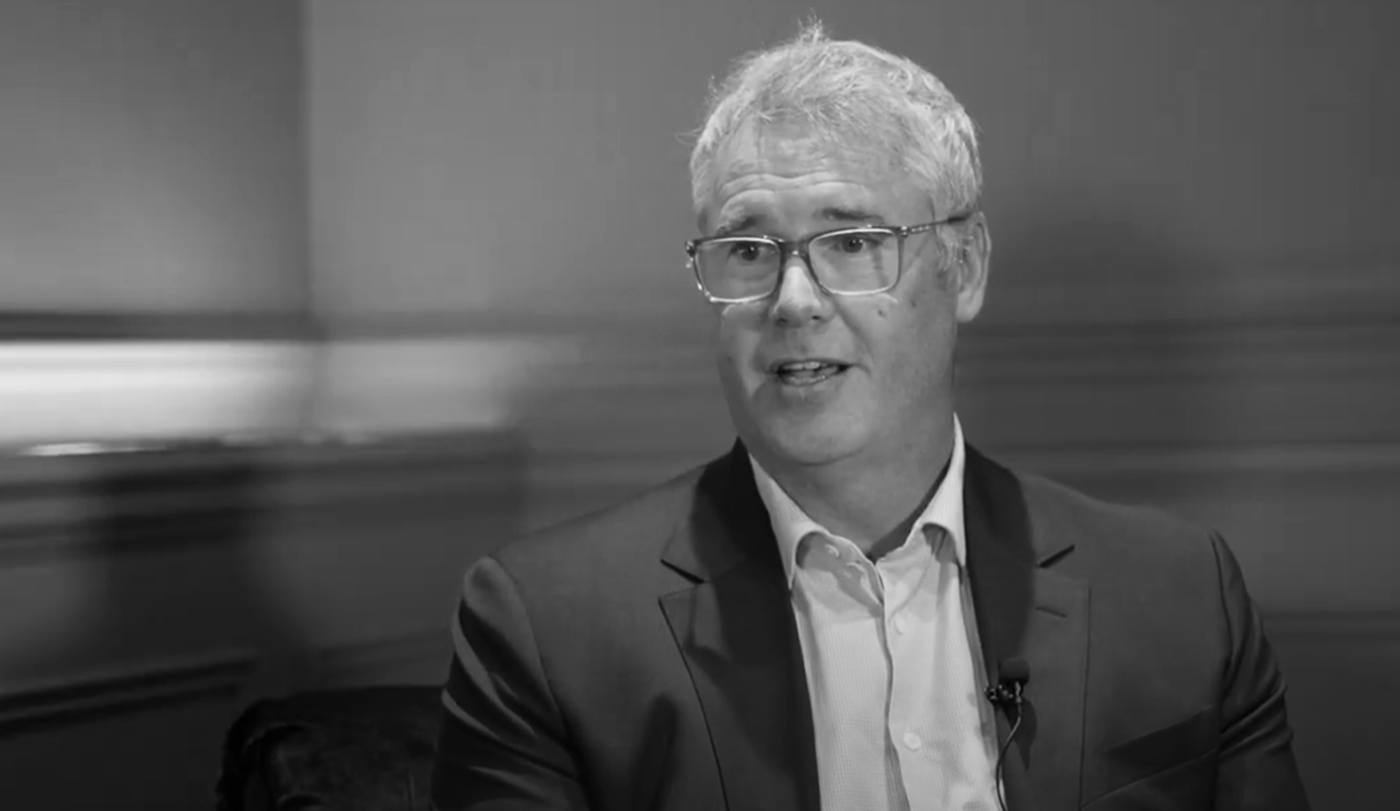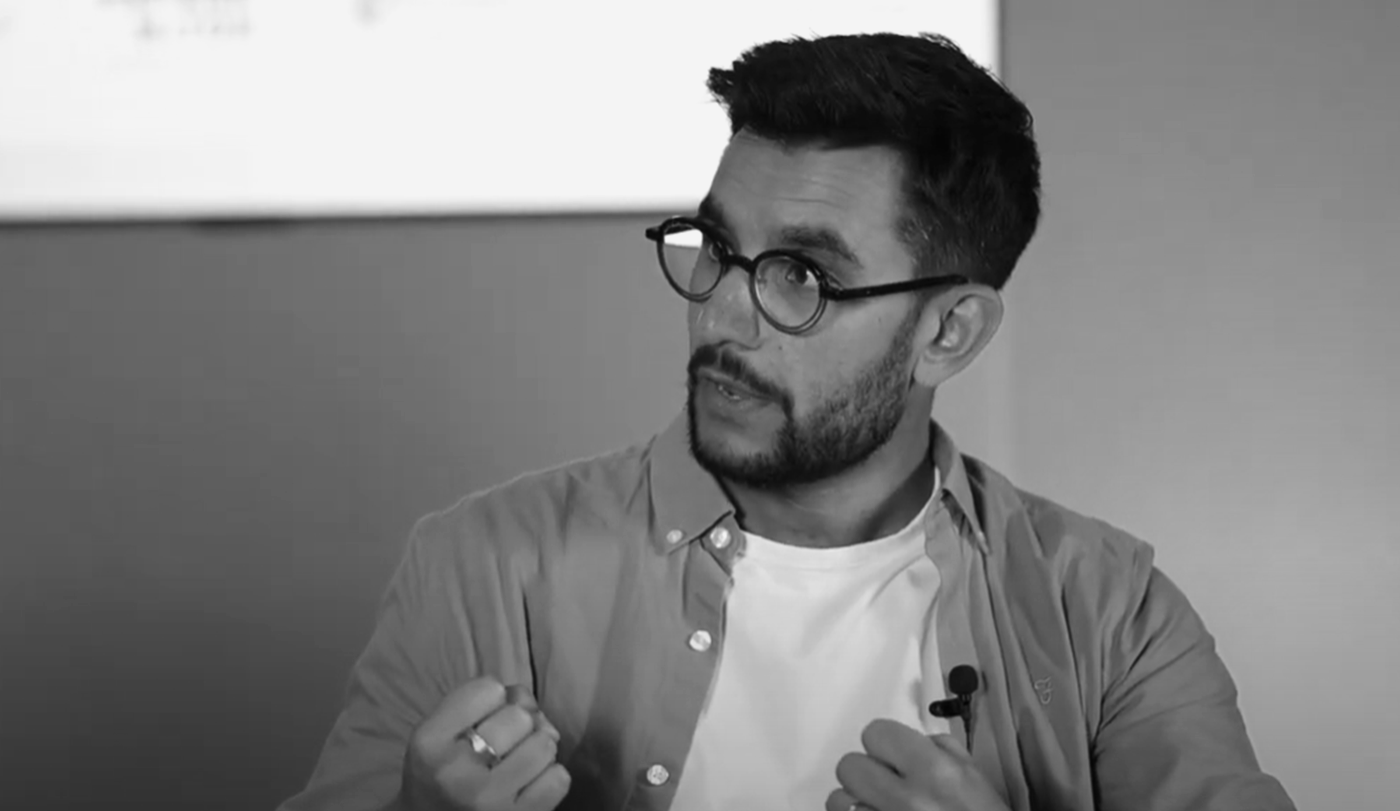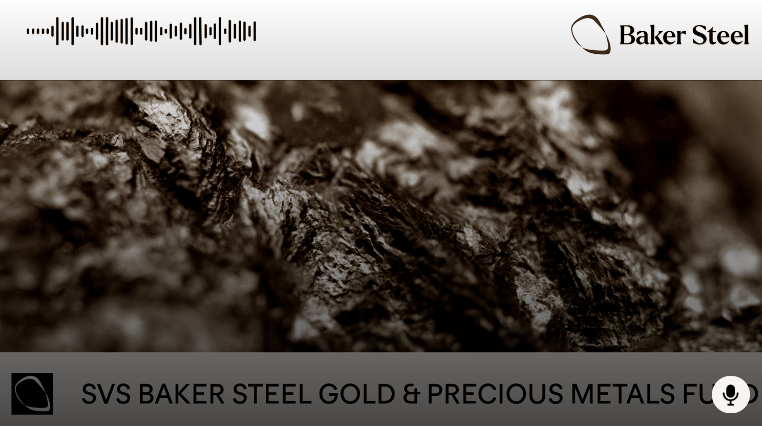On getting properly paid for risk, staying humble and the ‘dinner party chat’ test
In our regular video series, we interview the wealth sector’s key decision-makers to discover how they think about life, both within the world of investment and beyond it; what brought them into the business and what keeps them here; and what makes them and their companies tick
Whatever asset class or individual security he is looking at, the first question David Coombs, head of multi-asset investments at Rathbones Asset Management, asks is, What is the risk of it going wrong? “I know that sounds slightly negative,” he tells Wealthwise editorial director Julian Marr in this latest Choice Words episode, “but, when you are running multi-asset funds, it is as much about what you avoid as what you invest in.
“Ultimately, am I being paid for the risk? That may seem simple – but I think investing is quite simple, actually. If I can buy a Romanian government bond in euros that is yielding 6% and hedge it back to sterling to get a yield of 8%, that is inflation plus four or five. That is an equity-type return for a government bond on a euro-convergence story.
“That is how I think about every investment – whether it is a bond or an equity – from the bottom up. It is why, for example, I have almost nothing in corporate bonds at the moment – because I believe you are not being rewarded for the liquidity risk you are taking. I would rather be in sovereign bonds, where you can really find some value. So everything comes back to, Am I being paid for the risk I am taking?”
The same framework applies for deciding if any less ‘traditional’ assets make it into his portfolios. “It depends on your definition of ‘traditional’, obviously – but, when we look at alternatives, we really use quant-type strategies or arbitrage-type strategies rather than, I suppose, ‘traditional alternatives’,” says Coombs.
What’s the pay-off? What’s the downside risk? And does it make any sense? If it doesn’t, just leave it alone. If it doesn’t reduce your risk and it doesn’t enhance your return, go zero.”
“We don’t look to commercial property, particularly, and we don’t even think of infrastructure as ‘alternative’. “So we might look at commodities but we will also look at using derivatives to alter the risk/return of those commodities because they can provide volatility – sometimes, for example, they can be highly correlated to ‘risk on’. So it is taking derivatives to generate some defined non-correlated returns to equities and bonds.
“It is quite a complex area but even then, in a sense, it is no different. What’s the pay-off? What’s the downside risk? How does that correlate with the rest of the risk you are taking in the portfolio? And does it make any sense? If it doesn’t, just leave it alone – don’t bother. Don’t underweight. Don’t go into areas we don’t need to go. If it doesn’t reduce your risk and it doesn’t enhance your return, go zero.”
‘Dinner party chat’
Elsewhere in the conversation, Coombs brings up his ‘dinner party chat’ test for ensuring the team’s client communications are as user-friendly as possible, explaining “From the podcast we run to a quarterly commentary, everything is complied down to the retail, which we call – and please don’t take offence at this! – ‘dinner party chat’.
“Ultimately, you want to reassure your investors – because, with multi-asset, you tend to get a bigger share of the client’s wallet. You are not just 5% of a portfolio – you are typically a third, a half or maybe all of their assets – and so they want to be reassured. And what reassures them is simple, plain English and things they can understand and can talk about with their friends.
“And if you can also show some thought leadership or some interesting ideas in language that does not take them down a rabbit hole and avoids jargon, they can then talk to their friends about that. Then, actually, not only do your clients engage with you and you become a human being and a real person – rather than some fund manager in a tower somewhere – you never know, they might encourage their clients to buy my funds as well. And that wouldn’t be a bad thing!”
A full transcript of this episode can be found after this box while you can view the whole video by clicking on the picture above. To jump to a specific question, just click on the relevant timecode:
00.00: What excites you about the current investment outlook? What worries you?
02.30: What do you most look for in an individual investment? What constitute red flags?
03.55: To what degree should professional investors be thinking beyond so-called traditional investments? Towards what?
05.08: What is your approach to client communications?
06.32: What was your path into investment – and, if you had not taken it, what do you think you would be doing now?
08.52: What is the biggest investment mistake you are prepared to admit to – and what did you learn from it?
11.42: Outside of work, what is the strangest thing you have ever seen or done?
13.22: What do you see as the best and worst-case scenarios for the future of wealth management in this country?
16.06: What advice would you have given your younger self on your first day in this business?
17.00: Two Choice Words recommendations, please – one a book; one a free choice?
Transcript of Choice Words Episode 20:
David Coombs, with Julian Marr
JM: Well, hello and welcome to another in our series of ‘Choice Words’ videos, where we get to speak to the great and the good of UK fund selection and fund research. I am Julian Marr, editorial director of Wealthwise, and today I am delighted to be talking to David Coombs, who is head of multi-asset investments at Rathbones Asset Management. Hello, David. Good to see you.
DC: Hello. Good to see you too.
JM: Let’s jump straight into my first question …
DC: Go for it!
JM: Oh, I see – you are really pumped! Bring it on, Jules – ask me your question! What have you got? Well, it was all about the investment outlook. What excites you? What gives you pause for thought?
DC: Well, I mean being multi-asset and being Welsh, I tend to go ‘pause for thought’ first – the glass is half-empty! There is a lot of stuff out there, of course – whether it is tariffs, whether it is what’s going on in terms of the oil price. In the UK, we have our own issues to worry about – the gilt market and black holes – so there is a lot to be worried about, really. Also we are seeing big durations in markets. Yes – markets are up, there are big rotations going on and you have got to be across all of these different moving parts.
I think what is exciting me or the good that is coming out of it is, basically, it is unlike last year, which was so concentrated, with the focus on the ‘Mag Seven’. And we are all just bored of the Mag Seven, right? And no-one more than me – because I didn’t have enough of it!
But this year, you have seen much more of a return to fundamentals. The market has been a little bit more broad – in terms of where you are seeing the opportunities and where they are playing out. So actually, for me personally – and it is all about me, right! – this is a better market environment because you are starting to see the risk you take being rewarded. Whereas last year, frankly, it was just momentum, momentum, momentum – and it was very difficult to add the value.
JM: Did I miss the upbeat part? That all felt very downbeat!
DC: The upbeat bit is it is a broader market and you are getting more volatility and that creates opportunities. I mean, it’s not a massively bullish outlook but what I’m saying is, with earning season guidance and tariffs, there is lots of uncertainty and that does create the opportunity to outperform – and I think that is the exciting bit. Clients don’t like volatility but active managers do quite like it – so long as it does not go on too long.
JM: No – that makes sense. And, by the way, it really is all about you – at least for the next 15 or 20 minutes – because no-one is tuning in to watch me, I guarantee you that!
What’s the pay-off?
JM: Let’s now zoom in from the macro to the micro, as it were – what do you look for in an individual investment and what do you consider a red flag?
DC: Again, it’s all about the risk, right? So whether I am looking at Brazil at the moment, for example, or looking at Romania or looking at an individual company, it is all about, What is the risk of it going wrong? Which I know sounds slightly negative but, ultimately, when you are running multi-asset funds, it is as much about what you avoid as what you invest in, right? So, ultimately, am I being paid for the risk?
That may seem simple – but I think investing is quite simple, actually. So if I can buy a Romanian government bond in euros that is yielding 6% and hedge it back to sterling and get a yield of 8%, that is inflation plus four or five – that is an equity-type return for a government bond on a euro-convergence story. I use that as an example to show, actually, it is a relatively liquid bond market in Romania and it is denominated in euros so, for a sterling investor, that is very attractive – I am getting an equity-type return from a bond.
That is how I think about every investment – whether it is a bond or an equity – from the bottom up. That is why I have almost nothing in corporate bonds at the moment – because I believe you are not being rewarded for the liquidity risk you are taking. I would rather be in sovereign bonds, where you can really find some value. So everything comes back to, Am I being paid for the risk I am taking?
Does it make sense?
JM: Let’s move to alternative investments. It almost felt like you were, when you mentioned Romanian high yield, but do you look beyond traditional investments for your portfolios and, if so, to what areas?
DC: I mean, it depends on your definition of ‘traditional’, obviously – but, when we look at alternatives, we really use quant-type strategies or arbitrage-type strategies rather than, I suppose, ‘traditional alternatives’. We don’t look to commercial property, particularly, and we don’t even think of infrastructure as alternative.
So we might look at commodities but we will also look at using derivatives to alter the risk/return of those commodities because, again, they can provide volatility – sometimes they can be highly correlated to ‘risk on’. So it is taking derivatives to generate some defined non-correlated returns to equities and bonds.
It is quite a complex area but even then, in a sense, it is no different. What’s the pay-off? What’s the downside risk? How does that correlate with the rest of the risk you are taking in the portfolio? And does it make any sense? If it doesn’t, just leave it alone – don’t bother. Don’t underweight. Don’t go into areas we don’t need to go. If it doesn’t reduce your risk and it doesn’t enhance your return, go zero. That is our framework, really.
‘Dinner party chat’
JM: Thank you. Let’s move on to client communications. I know you’re a great communicator … you will think I am having a go at you being Welsh there! But what I mean is you have written for me in the past – so I know you write well – but what is your approach to client communications? And how do you ensure your clients stay along for the full journey, so they don’t miss out as so many people seem to do?
DC: All the communications we do – whether it’s the podcast we run, right down to a quarterly commentary – everything is complied down to the retail. And we call it – and please don’t take offence at this! – ‘dinner party chat’.
That is because, ultimately, you want to reassure your investors – because, with multi-asset, you tend to get a bigger share of the client’s wallet. You are not just 5% of a portfolio – you are typically a third, a half or maybe all of their assets – and so they want to be reassured. And what reassures them is simple, plain English and things they can understand and can talk about with their friends.
And if you can also show some thought leadership or some interesting ideas – for example, AI at the moment – and, again, in language that does not take them down a rabbit hole and avoids jargon, they can then talk to their friends about that.
And then, actually, not only do your clients engage with you and you become a human being and a real person – rather than some fund manager in a tower somewhere – you never know, they might encourage their clients to buy my funds as well. And that wouldn’t be a bad thing! JM: Fair enough. Maybe I should change ‘Choice Words’ to ‘Dinner Party Chat’ because that is very much the level we are aiming at here!
Late to the game
JM: It has just occurred to me that, although I have known you long enough, I do not actually know the answer to this next, more personal question – what was your path into investment? And if you had not taken it, what do you think you would be doing now?
DC: Well, I am in danger here of straying into Keir Starmer and ‘my father was a toolmaker’ territory because my staff – my team, sorry …
JM: Your minions?
DC: The people who report to me! They take the mickey out of me all the time – there is no respect! – in the sense they have heard this story a million times. So apologies to them. But, basically, I left school before finishing my A-levels and went to work in a bank. I wasn’t very good at it because I was bored opening and closing bank accounts and so they put me in the investment department to collect dividends.
I was working in investment admin and begged to get a job as an investment manager on the private client side. Some idiot gave me that job! I did it for quite a while and then, when I got to 40, I decided I wanted to move into asset management – and, again, somebody took a risk on me.
So, at the age of 40, I started running funds – I was very late into the asset management world, which I think was an advantage. Others may think differently! Still, I think coming to it – not slightly more mature, necessarily, but slightly older and more circumspect – probably hasn’t been a bad thing.
JM: Real-world experience?
DC: Yes. But also just not believing in your own kind of BS, I guess – I can’t think of a better way of putting it. But, you know, I have seen a lot of young fund managers have a very good one or two years and then disappear, because maybe, you know, they think it’s easy – and this job is never easy. OK, world’s smallest violin – poor fund manager, right! But it isn’t easy and, frankly, if you want to have a long tenure as a fund manager, you need experience and you need to have borne a bit of pain over that time.
JM: And aside from the loss to the world of high street banking, what would you be doing otherwise?
DC: Well, that’s a very good question! I mean, when I was at school, my careers teachers basically pushed me towards acting – and some would say that is what I did!
1999 and 2024 parallels
JM: Very philosophical. You touched on the investment mistakes of other people – the ‘here today, gone tomorrow’ type of fund managers – they know who they are! But what was your own biggest investment mistake – or the biggest mistake you are prepared to admit to – and what did you learn from it?
DC: I knew this question would come up – because it obviously comes up quite a lot – and you think of smart ways of making yourself look brilliant. Look, I’ve made a lot of mistakes, right? And I think the fact is, to be a good fund manager, you have to be prepared to make mistakes. The first thing I say to the young people who join my team is, I need you to make mistakes. You know – in a reasoned way …
JM: Yes – please don’t go out of your way to make mistakes!
DC: No – it’s not a badge of honour! Nevertheless, we are risk-takers – therefore you have to be able to take risks and you have to make decisions. So there were lots of mistakes. I made mistakes in 1999, for example, because I could see all the tech stocks were going to huge valuations – many of those weren’t even profitable – and I was underweight and underperforming and I panicked. And, in the second half of 1999, I started to buy some of those stocks – and, of course, you know what happened in 2000 to 2002.
So I didn’t stick with my conviction and, whether it was imposter syndrome or whether it was lack of confidence when the market is going against you, that was a big mistake to just follow the crowd and follow the herd. And we are all in danger of doing that, all the time. I mean, we all try and look confident on videos like this – because people want confidence – but, ultimately, the markets can humiliate you quite regularly. And it is how you deal with that and understand that that is really key.
JM: Yes, it is tough to fight against it, isn’t it? I do remember it back then.
DC: Well, it is. It was Tony Dye, wasn’t it, who famously lost his job during the late 1990s for sticking to his guns. And, you know, as a young manager at the time – I was admittedly on the private client side, rather than in asset management – it was very hard. I mean, it was a bit like betting against ‘Mag Seven’ last year – I could see a lot of parallels last year with 1999 actually.
JM: But you held off, didn’t you? You mentioned earlier you felt like you did not own enough but, actually, you don’t regret that?
DC: No. I mean, this time, I stuck to the process – and, don’t get me wrong, it meant my performance was pretty ordinary last year. But then DeepSeek happened in February this year and, all of a sudden, you kind of get that relief that, I wasn’t as stupid as I suddenly thought I might be!
And that’s the point – you know, markets can make you look stupid for quite long periods and there is that danger you just capitulate. I think you are meant to try and learn from mistakes – I got there in the end, right? So I turned it into a positive! But it is genuinely true – you have to realise you can’t know it all, all the time – and you just have to become comfortable with that.
Dark turn
JM: Moving on now to what is definitely everyone’s favourite question in this series, Outside of work, what is the strangest thing you have ever seen or done?
DC: I mean, I have done lots of strange things doing this job, let alone outside of work! I guess the strangest thing I have seen recently – and obviously, being of a senior age, I could trawl back – but I was in Peru last year and saw the mummy of a 14-year-old girl, who was sacrificed during the Inca Empire. It was actually on a Channel Five video with Dan Snow recently, if you want to check it out – though I’m sure it’s on YouTube or TikTok or whatever your social media of choice is.
JM: Oh yes – you know me so well!
DC: Scrolling away, scrolling away! So, first, it is a shocking story of these young girls who were ‘schooled’ to be human sacrifices for the Incas. But then this mummy is so well-preserved and it is in this tiny little museum – I think there were three other people in there when I visited – and it is just unbelievable and shocking and rather strange to think you’re looking at the body of a young girl who was sacrificed 500 or 600 years ago. So that was the strangest thing I’ve seen in the last five to 10 years, I should say.
JM: I was going to say that took a very dark turn but, equally, I am the one who asked the question – and your answer is definitely up there! I ask these questions for a reason – I am still not quite sure what that reason is!
Philosophical issues
JM: Back to the safety of His Majesty’s financial services industry now – what do you see as the best and worst-case scenarios for the future of wealth management in this country?
DC: I guess, I would say this, wouldn’t I – but I do worry about the move to passive. And this is not knocking passive investing – I think it has a role to play. But I do worry that this rush to passive may be driven by cost – sometimes performance as well, to be fair – but I think cost is the big player. And I do worry about the lack of thought on where people are investing their capital. We talked about the Mag Seven and momentum and, OK, you’re probably not going to lose your shirt on the Mag Seven – he said, hopefully.
But, you know, passive investing – whatever those firms would say – I don’t believe is engaging with those companies. I don’t think it is good for capitalism – where capital is allocated purely based on the size of a company in an index. Just philosophically – and it’s got quite deep, this conversation! – that slightly worries me. And it worries me about the momentum that drives, ultimately, everyone into the same place, which isn’t great – and the big get bigger and so the bubbles get bigger.
There is also a lot else to worry about – and I worry about the transition to crypto. Again, it concerns me that the wrong people will be in the wrong investments – and I get asked about crypto in every meeting I do. I personally don’t invest in crypto – I don’t fully understand where it goes and I would never invest in something I don’t understand. Yes, there are lots of stories about how much money people have made – and now we are back to dinner party chat! – but it worries me we are rushing into something we don’t fully understand.
JM: Again, I was going to ask if there was a ‘half-full glass’ at the end of that answer?
DC: Well, I think the good news for wealth management is that, increasingly, you are seeing ever-greater levels of professionalism – both in advice and in investment management. That is driven by a much more competitive marketplace – clients are demanding better outcomes and there is more transparency on price and outcomes – and I do think the good will get better and the mediocre will disappear.
So, ultimately, the good thing about passive is it is going to drive out the mediocre – and then I think AI will also help in terms of improving client outcomes, as long as it is adopted the right way. And that will be a challenge.
Lose the arrogance
JM: Last couple of questions. First, is there any advice you wish you had been given by your future self coming back in the time machine on your first day of work? Though not in the bank, perhaps!
DC: This is my 41st year in the industry – which looks impossible, I know! But I think my advice would be – and I didn’t always follow it, by the way, as my younger self, and some would argue I probably don’t do it now! – but I think you have got to stick to your convictions, stick to what you are best at and really recognise what you are not good at, because that is an even bigger skill, actually.
So work on those – but, ultimately, remember you are never going to know it all so have that humility to change your mind and lose the arrogance. And that is not always easy as a fund manager, when people butter you up – a lot.
Pulp and fiction
JM: Last question, then. We call this ‘Choice Words’ because of the choices you make in your professional capacity but we are after a couple of personal recommendations now. One is for a book – it does not have to be investment-related, although it can be – and the other is a ‘free hit’.
DC: OK. When asked about books, people tend to want to seem cerebral, right? But, if I’m being honest, usually the last thing I want to do is read something heavy when I’m doing the job I do. So I’d say the best book is a fiction book – well, it’s actually a trilogy – I have read in the last five years or so. And that’s Don Winslow’s ‘Mexican Cartel’ trilogy, right?
So definitely have a look at that over the summer. It is maybe a little bit gory in places – so just a trigger warning! And then I guess the free hit is nothing particularly spectacular – I love music and the best album I have heard for quite some time is from a group or band I’ve never really liked. And that is Pulp’s new album, ‘More’. So give that a listen – it’s quite different to their usual stuff. It’s mellow and it’s class.
JM: ‘Different Class’, even! Good answers. I’m not necessarily looking for intellectual stuff on this – we can have The Philosophy of Money on one side and Slow Horses on the other! So the Mexican Cartel is one to be digging out – and the Pulp album as well. I keep meaning to buy it – or I don’t have to buy it anymore, do I? Download it, stream it – come on, granddad, come on! Those are good ones – I shall look them both up, which means they are definitely great ‘Choice Words’ choices. David, thank you so much for your time today.
DC: Not at all – I enjoyed it. Thank you.
JM: And thank you very much for watching. Please do look out for further Choice Words videos as they are published.









